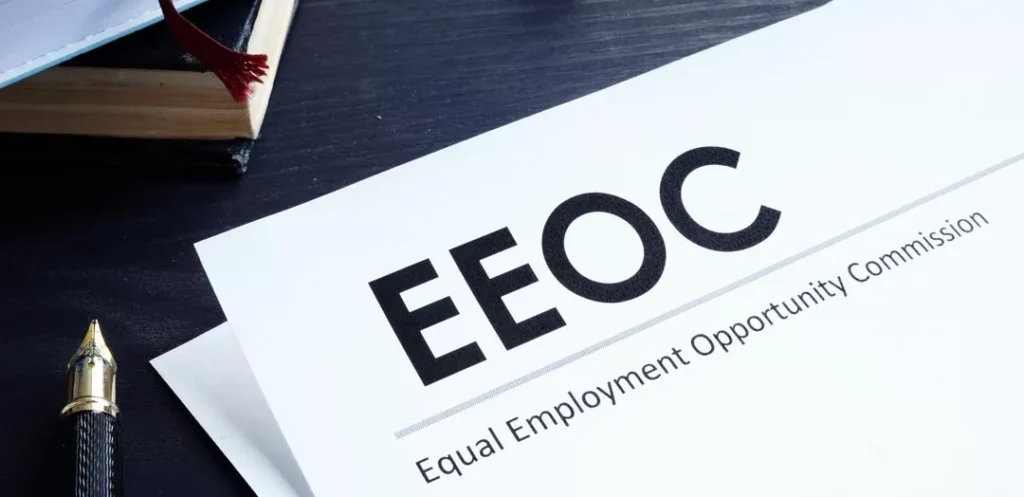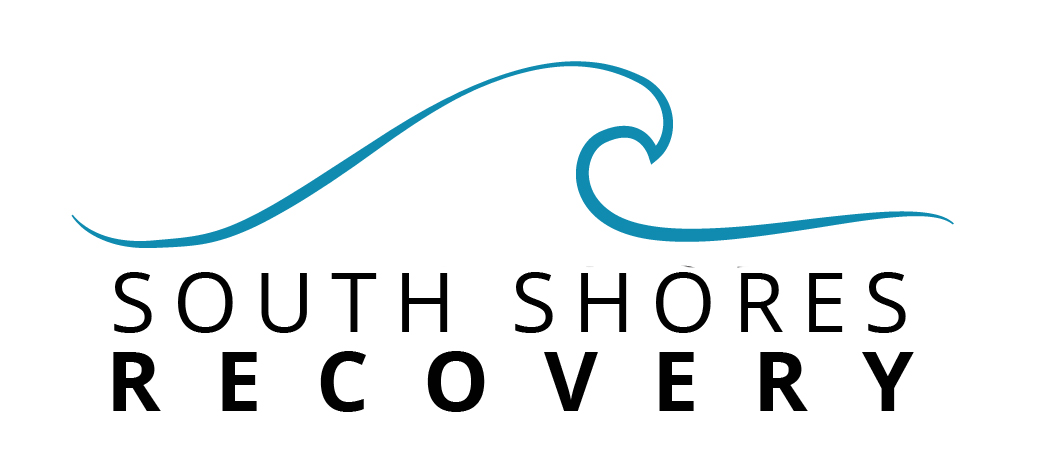A Guide from South Shores on Getting Support in Early Recovery
Currently in the United States, the opioid and methamphetamine epidemics are at the forefront of the news and have become well known. During the last decade, drug or alcohol addiction has managed to dominate headlines in multiple categories, becoming one of the most talked about topics in medical, legal, and economic forums at the local, state, and federal levels.
At the focal point of all of this is California – a state that has some of the highest usage of heroin and methamphetamine nationally. But is drug addiction a disability in California?
Because of the high potential for death and long-term mental and physical challenges, it’s widely accepted by most in the medical industry, and our society as a whole, that drug addiction falls under the wider classification of being a chronic disease.
Knowing this, there is a strong argument for the case that the ADA, or the Americans with Disabilities Act, should cover those struggling with drug or alcohol addiction. Individuals in this situation might also explore ‘disability insurance’ and ‘short term disability insurance’ options for financial support during their recovery, which can provide income replacement for those unable to work due to illness, injury, or medical treatment, including substance addiction recovery.
In this article, we dive into every layer of the topic and shed light on this important subject for those struggling with drug or alcohol addiction. Let’s start with some of the more important background information – the specifics of the ADA and employment. We’ll also offer up more specific tips and highlight some of the resources offered at South Shores Detox and Recovery to get clients on their feet and thriving in early recovery!
The Rules of the ADA and Employment: Does Disability Pay for Rehab?
The Americans with Disabilities Act protects those in certain situations against discrimination at work while they’re injured or dealing with a long-term debilitating disorder, including those undergoing addiction treatment or substance abuse treatment for drug or alcohol addiction. If an individual is in a condition that prevents them from completing the duties of their job, it’s illegal to terminate them from the position or dock their pay. This encompasses individuals seeking help for substance abuse, emphasizing the importance of support for addiction treatment as a critical component of the ADA’s protections.
Understanding this, there are certain rules, however, that outline an individual who falls under the designations and rules of the ADA. Any individual who abuses the following drugs is subject to disqualification from any disability compensation:
- Any prescription medication considered a narcotic (oxycodone, hydrocodone, morphine, oxymorphone, Dilaudid, etc.)
- Illegal street drugs such as heroin, cocaine, methamphetamine, MDMA, etc.
- Any opioid drug – illegal or otherwise
However, thanks to the EEOC, certain standards exist that use the fact that drug or alcohol addiction is considered a disease to leverage power against the ADA for certain individuals. Anybody who is found violating the standards regarding any illegal drug mentioned above may be exempt from disability termination if it’s discovered they’re actively seeking help for their illegal drug use.
EEOC Standards and Potential Scenarios

One of the most positive elements of the EEOC standards set forth for California residents regarding substance abuse is the fact that it covers individuals who aren’t necessarily disabled from performing work altogether.
A substance abuse issue isn’t considered a traditional physical or mental impairment. However, those who have issues with abusing drugs illegally may still receive short term disability benefits, including monthly benefits, in the short term if they enroll in an inpatient treatment program.
These short term disability benefits serve as income replacement, allowing individuals to focus on recovery without the financial stress of time off work. To qualify for these benefits, medical justification and documentation, often involving healthcare professionals in addiction rehabilitation and therapy, are required.
What If You Don’t Need Full Leave?
Other scenarios might include self employed individuals seeking rehabs who attend part-time treatment with a counselor or as part of group therapy sessions. These employees wouldn’t fall under short or long-term disability payment eligibility.
However, they may be required to switch to a part-time schedule or significantly decrease the hours they work. In situations like this, the employee wouldn’t be disciplined or deal with a reduction in pay because of their limited availability. In addition, they must be allowed to return to their normal position.
Health Conditions Perpetuated by Drug or Alcohol Addiction
It’s common for those who suffer from some type of prior condition to use prescription medications or illegal narcotics as a way to cope with their challenges. These individuals commonly fall victim to long-term drug abuse. This situation is known as a co-occurring disorder – something that millions of Americans suffer with daily.
Individuals with a complex medical history might face additional challenges when seeking support for conditions related to drug or alcohol addiction, as their medical records require thorough evaluation to counter arguments by insurance companies and build a supportive claim.
In California law, the ADA covers drug abuse disorders that are diagnosed by a medical professional. In addition, those with drug abuse challenges suffer from collateral issues stemming from their addiction. These include, but aren’t limited to:
- Memory-related issues or memory loss from alcohol abuse
- Mental health issues commonly related to co-occurring disorders such as anxiety, depression, and bipolar disorder
- Problems with vision
- Mobility issues and more
Federal Law Regarding Drug and Alcohol Use and the Workplace

It’s important to be aware of the specific legislation regarding disability benefits, substance use disorders, and members of the workforce. You need to be aware of three major acts adopted by the federal government.
The first, which we discussed earlier, is the Americans with Disabilities Act, or ADA – adopted in 1990. First, we have the Rehabilitation Act of 1973. Second, The Drug-Free Workplace Act of 1988 – followed by the legislation covered in the above section – the Americans with Disabilities Act of 1990.
Additionally, when considering disability benefits for substance abuse issues, the role of the insurance company is pivotal in providing short-term disability benefits, whereas the Social Security Administration’s policies offer a comparison point, particularly in their exclusion of substance use if it’s material to the disability, highlighting the complexities of coverage in this area.
The Drug Free Workplace Act
This act imposed restrictions on government workers, federal contractors, and those receiving any type of federal grant. Employers were forced to deploy policies that increased drug awareness and educated employees about maintaining a drug-free work environment.
Despite restrictions, the Drug-Free Workplace Act must maintain a balance with attention to the ADA. Because alcohol or drug addicts may be considered disabled per California regulations, this prohibits discrimination against those with medical evidence of a substance use issue.
Federal Guidelines for Disabilities Regarding Drug and Alcohol Challenges
Per federal guidelines, drug and alcohol addictions significantly hinder major life activities – outside or inside the work position. If the individual is actively engaging in substance use within a period that perpetuates a belief that drug use will play a significant role in their work performance – this is a higher priority than the ADA rules regarding illegal drug use.
Specific California Laws Outlining Drug Addiction and Disability Benefits
Those suffering from drug addiction or additional physical or mental impairment related to drug or alcohol abuse are protected through a series of laws governing a requirement for a drug-free place of employment and compassion for those suffering from the challenges of the use of drugs.
Short term disability benefits are available for those with drug addiction or related impairments, providing crucial income replacement during their rehab stay.
Completing a full rehab program is essential for recovery and maintaining the benefits of short term disability in California, emphasizing the need for structured treatment and medical supervision.
California is nearly identical to the federal government in terms of the major acts passed regarding this topic, with one primary exception. Legislation passed in California includes the Fair Employment and Housing Act, or FEHA – the California Drug-Free Workplace Act of 1990.
California Drug Free Workplace Act
The California Drug-Free Workplace Act is nearly identical to the federal version of the same name as outlined above. Rules include posting notices or posters around the workplace to deter workers from engaging in substance use. The employer’s right to enact these policies is limited by the employee’s eligibility to avoid discrimination. California is one of the most strict states concerning employee fairness.
Regardless of the particular disability or disorder, California residents are protected during the presence of ANY mental condition, physical condition, or any additional disorders many of which extend beyond the description of Federal disability law.
That said, if the employee is not able to maintain a level of production that entails satisfactory output – even with reasonable accommodations, they may be relieved of their position. California does not protect those actively using drugs without the goal of recovery in mind. If an employee fails a drug test but is active in rehab or recovery – California law DOES protect them from termination.
Seeking Recovery from Drug Addiction in California

If you’re looking for help for drug addiction in California, the laws are very accommodating about illegal drugs and the workforce. Remember, a disability is any physical or mental challenge that impacts the way you conduct major life activities – addiction included.
Don’t shy away from obtaining help for fear of losing your job. There are several labor codes and rules to keep in mind to ensure you remain protected:
- Labor Code Sections 1025-1028
- As long as your employer has over 25 employees, you fall under the protection of these codes
- If your goal is to enter treatment, your employer must reasonably accommodate your requests
- Your employer must also take every measure to protect your privacy during this time
Additionally, the Substance Abuse and Mental Health Services Administration is a valuable resource for individuals seeking information and support for substance abuse treatment in California.
What Constitutes a Reasonable Accommodation
The term “reasonable accommodation” has been argued over in California courts concerning drug addiction and compensation. This term, at best, entails a restructuring of your job hours to accommodate treatment or other changes in major life activities.
Employees are not entitled to paid time off, but employees can use sick pay if it’s available. This sick pay covers time in an inpatient treatment program, or any other time used to remedy or recover from substance use challenges.
Is Drug Addiction a Disability in California? Important Things to Remember
To recap, try to always remember the following if you’re a California resident seeking disability benefits, supplemental security income, social security disability benefits, or have other general issues with substance use, the workplace, and any drug rehabilitation program:
- Rules banning the use of drugs are legal
- Employees suffering or who have suffered from addiction not be discriminated against because of their drug use.
- Benefits are NOT guaranteed to CURRENT users of illegal drugs, although certain compassionate advantages may be granted.
- A leave of absence is available for those entering treatment – but only with a qualified facility
- The organization must have 25 employees to fall under these rules
- Privacy protection measures must be deployed for every employee during this time.
- There is no guaranteed paid time off for alcohol abuse or rehab for drug or alcohol treatment
- Sick days are permissible if they’re available
- Otherwise, the employee, although not punished for taking time off, will not be compensated, but will be able to return to work after treatment or time off to handle their substance abuse challenges.
Are You In the State of California and Struggling with Substance Abuse?

If you’re a resident of California and need assistance with your drug or alcohol abuse challenges, there’s a facility that can help you recover and make sure you’re receiving fair treatment from your employer. South Shores Detox and Recovery has been helping clients throughout the California area, as well as welcoming clients nationwide to overcome their addictions and experience recovery.
We offer a full detox program, in addition to inpatient and outpatient treatment, with bridge therapy between these levels of care. Our professionals offer compassionate care through a variety of different treatment modalities, including behavioral therapies, trauma-informed treatment, and other evidence-based options.
Reach Out for Support and Resources at South Shores Today
With the assistance and support from our team of experts, combined with your willingness to embrace recovery, your odds of achieving long-term recovery are substantially higher than taking on the battle alone.
For more information regarding our programs and treatment options, and how we can help you or your loved one begin a new life in recovery, contact a member of our admissions team for a confidential call today!


Recent Comments